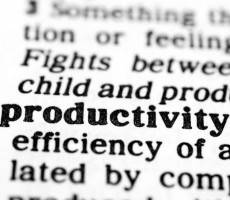July 13, 2016
Gensler publishes latest US and UK Workplace Surveys for 2016 0
 Gensler has announced the results of its Workplace Survey 2016 for both the UK and the US. Key claims of the UK report based on a study of 1,210 respondents include that the UK workforce seems to be divided into ‘haves and have-nots’, with mid and lower-tier workers confined to poor quality environments, 67 per cent of the workforce feel drained due to their office environment at the end of each day and that ‘innovators’ spend just 3.5 days of the working week in the office, highlighting the need for greater flexibility. Meanwhile, the key finding of the US study of 4,000 respondents is that a statistical link between the quality and functional make-up of the workplace and the level of innovation employees ascribe to their organisation, and found that a workplace that prioritises both individual and group work creates ‘an ecosystem of innovation’ across organisations and is a crucial predictor of how innovative an employee sees their company to be.
Gensler has announced the results of its Workplace Survey 2016 for both the UK and the US. Key claims of the UK report based on a study of 1,210 respondents include that the UK workforce seems to be divided into ‘haves and have-nots’, with mid and lower-tier workers confined to poor quality environments, 67 per cent of the workforce feel drained due to their office environment at the end of each day and that ‘innovators’ spend just 3.5 days of the working week in the office, highlighting the need for greater flexibility. Meanwhile, the key finding of the US study of 4,000 respondents is that a statistical link between the quality and functional make-up of the workplace and the level of innovation employees ascribe to their organisation, and found that a workplace that prioritises both individual and group work creates ‘an ecosystem of innovation’ across organisations and is a crucial predictor of how innovative an employee sees their company to be.








 A coalition of twenty major European telecommunications firms has come together to drive the rapid creation of a continent wide 5G network and warn national Governments and the EU of the dangers of over-regulation. The seven page document entitled the
A coalition of twenty major European telecommunications firms has come together to drive the rapid creation of a continent wide 5G network and warn national Governments and the EU of the dangers of over-regulation. The seven page document entitled the 


























July 13, 2016
World FM Day and the workplace design and management elephant
by Mark Eltringham • Comment, Events, Facilities management
(more…)